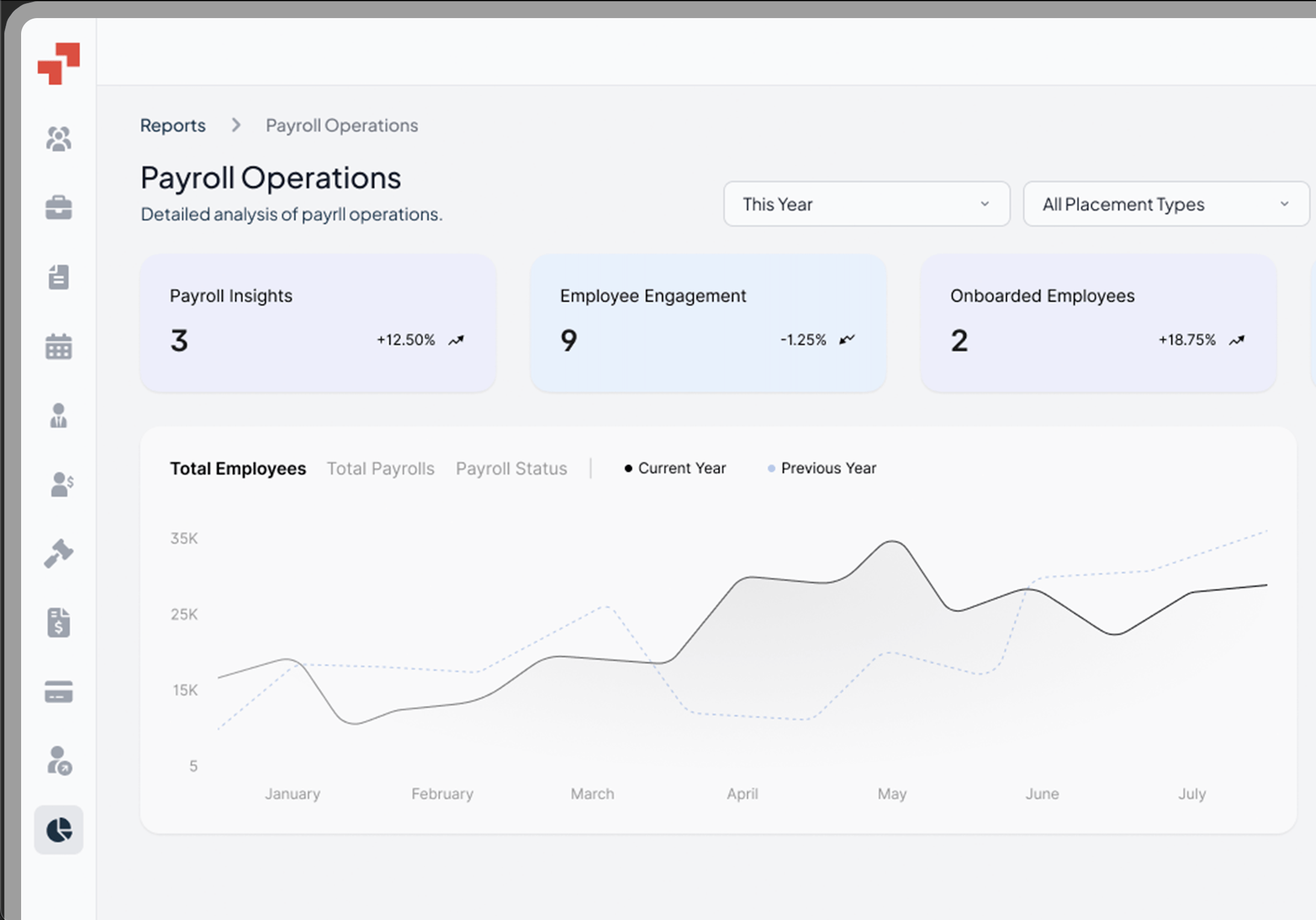Foreign Subsidiary
Related Terms
Foreign Legal Entity
Wholly-Owned Subsidiary
Legal Entity Rationalization (LER)
Divestiture
Employee Transfer
Expanding into a foreign country can unlock new markets, reduce operational costs, and help businesses build a global presence. But entering a new region requires choosing the right structure and understanding compliance, taxation, and legal risks. One popular option for international expansion is establishing a foreign subsidiary, which gives firms full control while operating independently overseas. Before committing to this route, companies should explore foreign subsidiary alternatives like an Employer of Record (EOR) or global employment outsourcing to decide what fits best for their growth plans.
Table of Contents
- What is co-employment?
- What are co-employment laws?
- Why is co-employment a risk?
- What are co-employment rules
- Co-employment do’s and don’ts
- How does co-employment work?
- What is the difference between co-employment and joint employment?
- Co-employment vs PEO
- Co-employment vs employee leasing
- Is co-op considered a full-time employee?
- Is it illegal to work for two jobs in the same industry?
- Co-employment examples
- Practical Case Study Example
- PamGro and Co-employment: Your Global Partner
What is a Foreign Subsidiary?
A foreign subsidiary is a legally separate company established in a foreign country and owned partially or fully by a parent company from the parent company’s home country .
It operates under local laws, has its own management structure, and manages day-to-day business independently. Companies choose foreign subsidiaries to gain full operational control while tapping into new international markets.
Foreign subsidiaries can hire employees locally, enter contracts, and hold assets independently. However, the foreign subsidiary operates under the host country’s corporate laws, labor rules, and tax regulations. Businesses typically use this model when they plan long-term expansion, want direct presence abroad, or need autonomy for region-specific operations.
What is a Wholly Owned Foreign Subsidiary?
A wholly owned foreign subsidiary is a foreign subsidiary in which the parent company owns 100% equity. This provides complete strategic and operational control, ensuring that the subsidiary operates consistently in culture, policies, and financial decisions across borders.
With full ownership, the parent company bears all financial risk and responsibility for compliance and reporting. Organizations often choose this structure when safeguarding intellectual property, maintaining strict quality standards, or controlling brand identity is crucial. While offering maximum autonomy, it increases setup costs and regulatory obligations, though it can lead to significant financial benefits,
What is a Foreign Subsidiary Company?
A foreign subsidiary company is a foreign-based legal entity controlled by another company headquartered in a different country. It is considered a separate business entity with its own taxes, financial reporting, hiring practices, and liability. Unlike branch offices, subsidiaries provide liability protection to the parent company.
Foreign subsidiary companies can conduct commercial activities such as manufacturing, hiring employees, sales, and distribution. This structure helps organizations build local credibility, tailor offerings to foreign workers in regional markets, and protect business interests in the host nation.
How to Set Up a Foreign Subsidiary
Setting up a foreign subsidiary involves legal registration in a new country, meeting regulatory requirements, and establishing operational frameworks. The process typically includes managing day to day operations :
-
Market research and feasibility analysis
-
Choosing legal structure (LLC, corporation, GmbH, Pvt Ltd, etc.)
-
Registering with local government and compliance agencies
-
Opening a local bank account
-
Establishing tax registration and payroll compliance
-
Hiring local staff or contractors
-
Ensuring data, IP, and operational compliance
The process varies by country and may take weeks to months. Companies often use global expansion strategy consultants or Employer of Record (EOR) services like PamGro to hire employees first, test the market, and later transition into a subsidiary when ready.
Key Features of Foreign Subsidiaries
Foreign subsidiaries typically have several key advantages :
-
Independent legal identity
-
Limited liability from parent company obligations
-
Local tax registration and reporting
-
Separate payroll, HR, and employee contracts
-
Operational and financial autonomy
-
Ability to sign contracts and hold assets
-
Flexibility to adapt to cultural and regulatory environments
This structure enables companies to scale locally while maintaining global control.
What is the Role of a Foreign Subsidiary?
The role of a foreign subsidiary is to operate and grow business activity in a foreign country while supporting the parent company’s international strategy. It handles local business operations such as staffing, sales, distribution, customer support, manufacturing, or R&D.
Foreign subsidiaries help companies align with regional laws and respond quickly to market trends. They also foster stronger cultural and business practices relationships within the local ecosystem.
Why Would a Company Set Up a Foreign Subsidiary?
Companies establish foreign subsidiaries to access foreign business, international markets, reduce logistical costs, and build local trust. This setup is ideal when a company plans long-term presence and requires full operational control abroad.
Typical reasons include:
-
Entering new customer markets
-
Controlling branding and distribution
-
Protecting intellectual property
-
Accessing local talent pools
-
Gaining cost efficiencies and tax benefits
-
Meeting regulatory or licensing requirements
Businesses often begin with EOR hiring for rapid entry, then move to a subsidiary once market potential is validated.
Foreign Subsidiary vs. Foreign Branch: What’s the Difference?
| Aspect | Foreign Subsidiary | Foreign Branch |
|---|---|---|
| Legal identity | Separate entity | Extension of parent company |
| Liability | Parent protected | Parent fully liable |
| Taxes | Local taxes as separate entity | Parent pays global taxes including branch profit |
| Operational control | Full autonomy | Controlled by parent |
| Setup difficulty | Higher | Lower |
A foreign branch office is simpler to set up but offers less legal protection. Subsidiaries suit long-term investment; branches suit testing and limited activities.
Foreign Subsidiary Advantages and Disadvantages
Advantages of Foreign Subsidiary
-
Legal separation shields parent company
-
Independent hiring and HR policies
-
Local market adaptation and cultural alignment
-
Full branding and strategic control
-
Access to local incentives and tax benefits
-
Supports long-term international expansion
Disadvantages of Foreign Subsidiary
-
Higher setup and administrative costs
-
Complex regulatory compliance
-
Time-consuming setup process
-
Requires ongoing legal and payroll management
-
Cultural differences may impact operations
Companies often use EOR services to avoid these initial barriers.
Do Foreign Subsidiaries Have to Pay Taxes?
Yes. Foreign subsidiaries pay taxes in the host country based on local regulations and local tax laws. They must also comply with reporting rules and transfer pricing regulations for transactions with the parent entity.
Depending on tax treaties, the parent company may also pay taxes on subsidiary profits repatriated back home. Refer to tax treaty guidelines for your jurisdiction, such as:
-
U.S.–Foreign Tax Treaties (IRS)
-
OECD International Tax Guidelines
-
Government foreign investment regulations (e.g., Australia Business.gov.au)
Tax rules vary globally, making expert advisory essential.
What is a Foreign Subsidiary Example?
A common example is a U.S. technology company establishing a subsidiary in India to hire software engineers and run development operations. The Indian subsidiary functions under Indian corporate law and payroll compliance.
Another example is a European manufacturing company opening a subsidiary in Mexico to reduce production cost while serving the Americas region. Each subsidiary follows local laws while contributing to global growth.
Practical Example / Case Study
A fast-growing SaaS startup in the U.S. wanted to expand into Southeast Asia to reach enterprise customers. Rather than immediately establishing a foreign subsidiary, they began by hiring sales and support staff using an EOR solution to stay compliant with local payroll and employment laws.
This approach helped them:
-
Test local demand
-
Build customer relationships
-
Understand regulatory landscape
-
Avoid entity setup costs and delays
After achieving strong traction in the foreign market , the startup incorporated a wholly owned foreign subsidiary in Singapore. Because they validated the market first, they avoided premature investment and expanded smoothly with established processes.
PamGro: Simplify International Expansion
Setting up a foreign subsidiary is a strategic decision — but it’s not always the fastest or most cost-efficient path. With PamGro’s Employer of Record and global workforce solutions, companies can set up a holding company to manage financial statements :
-
Hire talent in 150+ countries without opening entities
-
Ensure compliant payroll, taxes, and contracts
-
Reduce expansion risk and administrative burden
-
Transition to a subsidiary later when ready
Scale global teams confidently — start with PamGro as your global hiring partner.
Frequently Asked Questions About Foreign Subsidiaries
Yes, they operate independently under host-country laws.
Absolutely — they can hire full-time staff, contractors, and international talent.
Anywhere from 4 weeks to 6 months depending on jurisdiction.
An Employer of Record is a faster, cost-effective alternative to setting up an entity. Many companies hire globally using an EOR first, often relying on a dependent agent then consider opening a foreign subsidiary later if needed.
Hire the Best Talent, Anywhere






